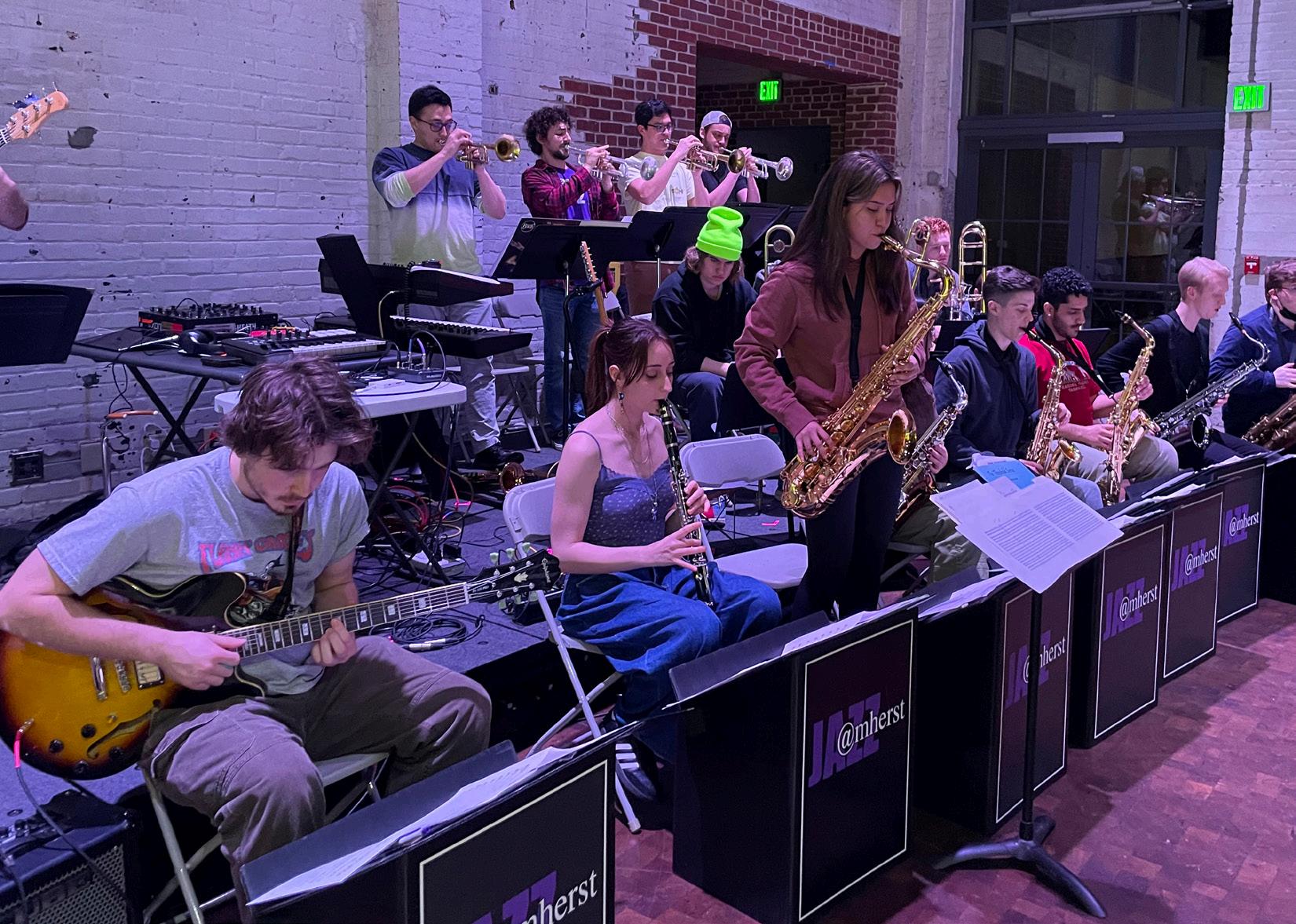
3 minute read
Students Respond to Middle East Earthquake
Liam Archacki ’24 Editor-in-Chief
Dania Hallak ’24 was preparing for an Association of Amherst Students (AAS) Budgetary Committee meeting — she is the treasurer of the AAS — when she learned that a massive earthquake had struck the Middle East, primarily impacting Turkey and Syria, the country where she was born and lived for most her life.
Advertisement
Hallak’s immediate response was to take what had happened at “face value.” But although she wished just to “logically process” the event, she, like other students from the region, was soon overcome by grief at the huge loss of life.
The 7.8-magnitude earthquake, which hit on Feb. 6, has left behind
Features 6
Latin Honors Requirement Change Prompts Campus Debate
Sam Spratford ’24 Editor-in-Chief
a death toll of nearly 50,000, caused countless injuries, and razed buildings to the ground. It was the deadliest natural disaster in Turkey’s history.
The initial catastrophe has given way to aftershocks, including a 6.3-magnitude quake that hit the same region on Monday. Efforts persist to free those trapped under rubble; provide medical care to the survivors; and supply food, shelter, and other resources.
Over 5,000 miles away from the disaster’s epicenter, in Amherst, students with ties to the region reported living for the past two weeks in a state of constant tension — frequently checking in with loved ones and mourning those who have died, while also trying to keep up with the demands of mid-semester college life.
New Student Center: Emma Burd ’26 checks in on the status of the new student center, particularly its budget.
Two prominent student organizations — the Middle Eastern North African Association (MENAA) and the Muslim Students Association (MSA) — have led fundraising efforts on campus. They each tabled in or outside of Valentine Dining Hall earlier this week, with plans to continue their efforts in the days to come.
Several students from the impacted region spoke with The Student about their experience of the catastrophe — from the initial shock, to ongoing fear and grief, to the support offered by the college community.
Cristy Kasbo ’25 is from Aleppo, Syria, which lies near the earthquake’s epicenter. “When I first heard about the earthquake, I quickly started calling and texting all of my family and friends who were in Aleppo
Opinion 8
to check in on them and make sure they made it out safely,” she said. “It was devastating to hear about people that I knew that unfortunately didn't make it out before their building crumbled to the ground.”
Another Syrian student, Ahmad Ziada ’26, said that he could not immediately get in touch with his loved ones in the region, either because it was the middle of the night there or because they were affected by the earthquake. “I was a bit stressed and nervous,” he said.
When he finally was able to reach them, they downplayed the severity of the situation, he said, to stop him from worrying.
Hallak explained that for many Syrian people, the earthquake feels like another step in a long line of
Continued on page 2
Seatbelts: Tapti Sen ’25 reflects on her own cultural assimilation through the lens of a certain car-protocol quirk.
Last week’s faculty vote to institute changes to the Latin honors policy caught the student body by surprise and has prompted outspoken disavowals of the new breadth requirement for summa and magna honors from some students and faculty. The protests have been tempered by enthusiasm for the shift away from the use of class rank towards a median grade requirement for summa and magna honors. Among those who were more intimately involved in the development of the policy, however, some think that the reactive outcry is symptomatic of the campus’s democratic shortcomings.
Student and faculty discussion around both parts of the proposal has been pervaded by re-evaluations of what Latin honors should signify about the Amherst graduates who earn them, and whether the new policy corrodes or strengthens this value.
Beginning with the class of 2027, in order for Amherst graduates to earn summa or magna honors, they must have satisfied a breadth requirement that entails completing one course in each of four broad disciplines: humanities, social sciences, STEM, and art. (Current students may choose to be grandfathered into the new requirements if it would result in a higher honor.)
Continued on page 4
ARTS&LIVING 14
“Turn Every Page:” Leo Kamin ’25 covers a Q&A with the director of the new documentary at Amherst Cinema.










